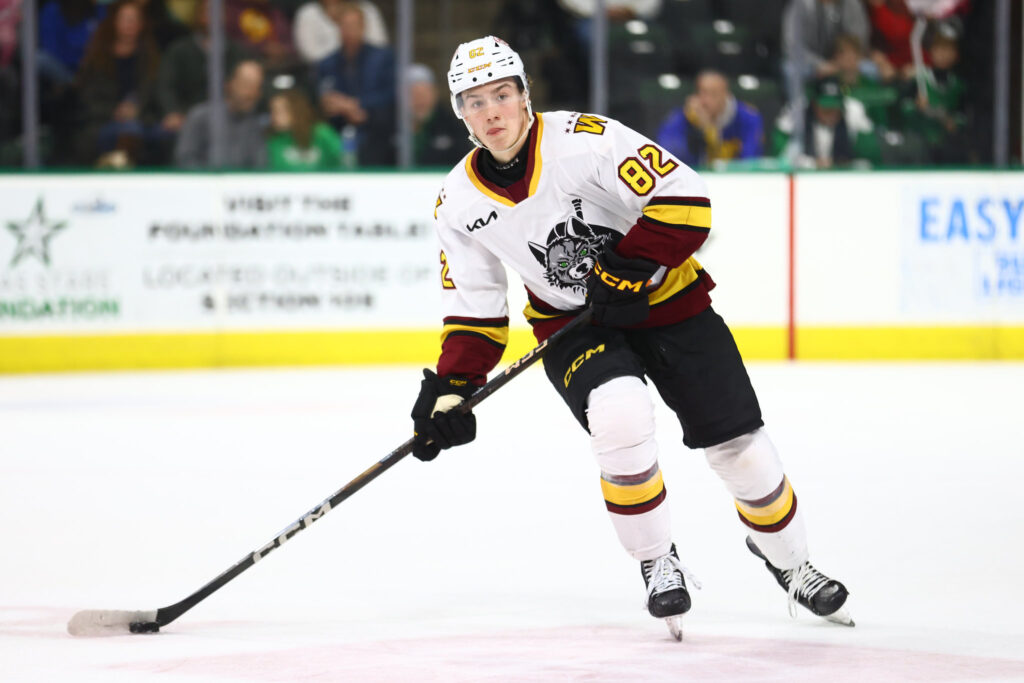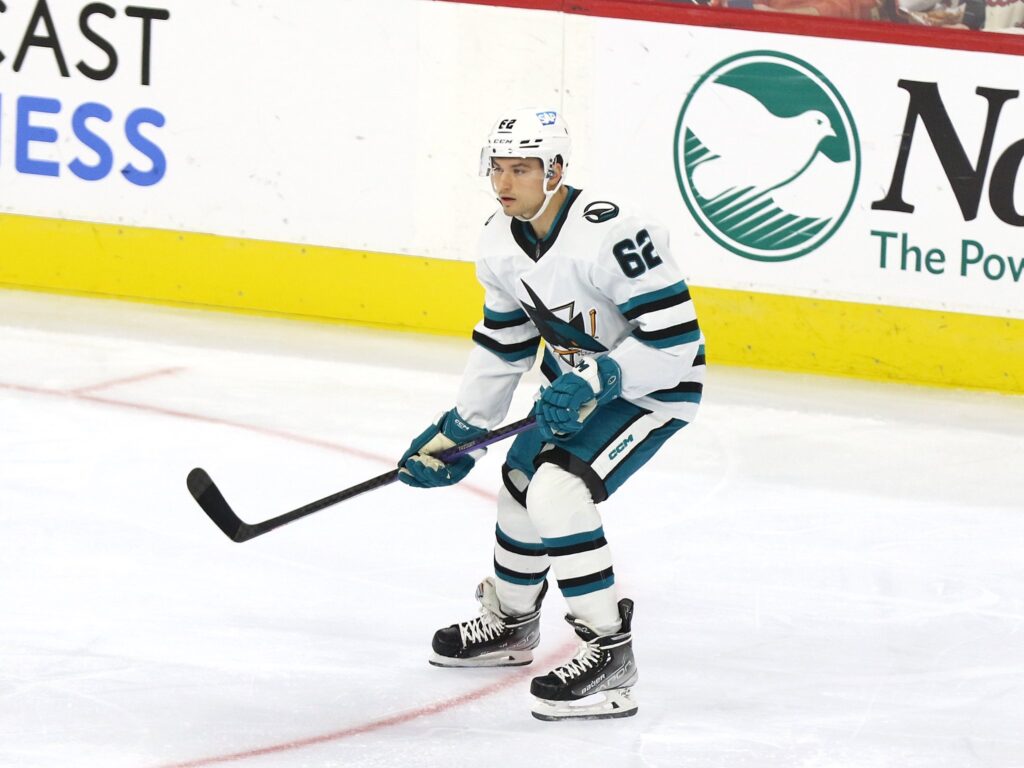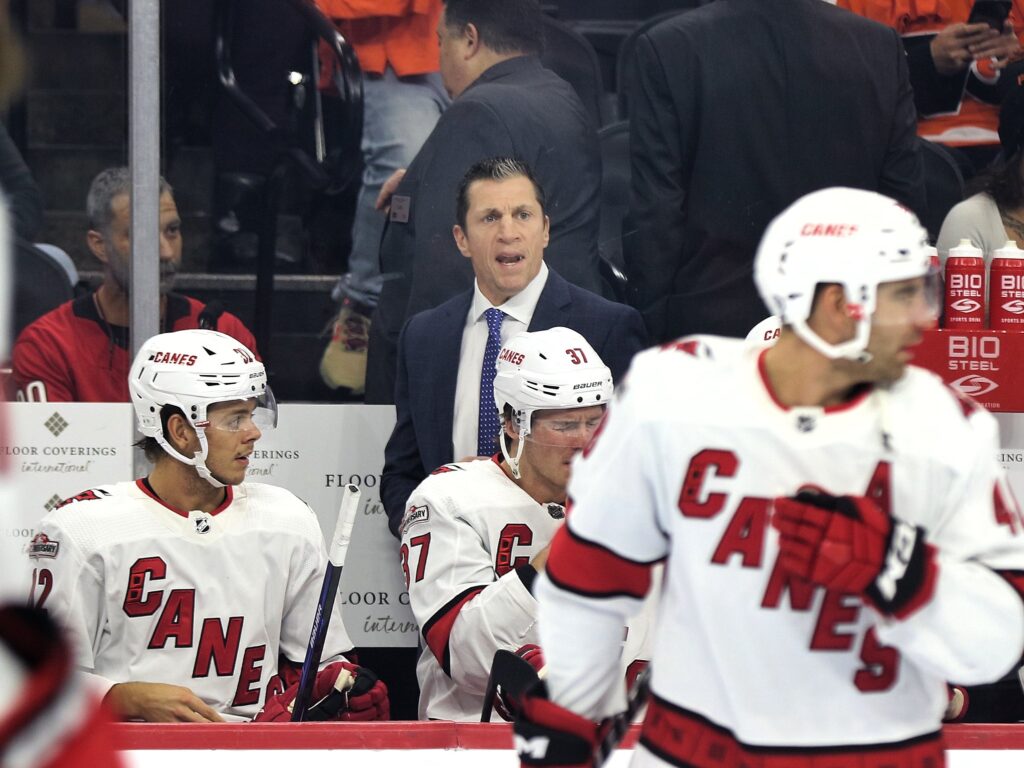As the autumn chill begins to settle in, the heat of NHL training camps is reaching its peak. For the Carolina Hurricanes, the process of forging a championship-contending roster from a sprawling camp list is nearing its conclusion. Following a flurry of transactions that saw a significant portion of the roster reassigned, waived, or released, the picture for opening night against the New Jersey Devils on October 9th is becoming tantalizingly clear. With just one preseason tune-up remaining, only a handful of questions—and a couple of roster spots—are left to be answered.
The front office and coaching staff, led by the unflinching Rod Brind’Amour, have executed a series of calculated, and at times difficult, moves. The main camp roster has been systematically whittled down to a manageable 26 players: 15 forwards, eight defensemen, and three goaltenders. This means the final, painful cuts are yet to come, as more players will have to be trimmed to reach the league-mandated 23-man limit. Let’s dissect the recent moves and handicap the final roster battles.
The Great Trimming and Tough Goodbyes
The final days of September were a whirlwind of activity, culminating in a massive roster reduction on Tuesday. Thirteen players were dispatched to the AHL’s Chicago Wolves, while two veterans on professional tryout contracts (PTOs) were released back into the open market. This came after an initial round of reassignments over the weekend, firmly signaling the transition from evaluation to preparation.
Among those ticketed for Chicago were a host of prospects and bubble players. Names like Noel Gunler, Tyson Jost, Josiah Slavin, Ryan Suzuki, and Gavin Bayreuther were placed on waivers, a necessary procedural step before they can bolster what looks to be a formidable Wolves squad. They were joined by a younger contingent—Nikita Quapp, Justin Robidas, Ivan Ryabkin, Gleb Trikozov, Felix Unger Sorum, and others—who will continue their professional development in the American Hockey League.
While most of these moves were expected, the sheer volume underscores a key strength of the Hurricanes organization: depth. The pipeline to Chicago is stocked with talent, ensuring that injuries at the NHL level won’t be a death sentence, but rather an opportunity for the next man up.
Chicago Bound
Perhaps the most discussed decision of the week was the reassignment of top prospect Bradly Nadeau. The 20-year-old winger, a first-round pick in 2023, was arguably one of the most impressive players throughout the prospect showcase and the six-game preseason slate. He appeared in five of those contests, showcasing an NHL-ready shot and a vastly improved commitment to his two-way game and physical engagement.

Sending him to the AHL might seem counterintuitive for a player who didn’t look out of place, but it’s a savvy, long-term play by management. As Coach Brind’Amour noted, the decision was tough. “We’d love to keep him here,” he said, “but we also have to figure out what makes sense… (We’d rather) keep him going and keep him playing.”
This is the classic developmental dilemma. Is it better for a blue-chip prospect to get 9-11 minutes a night in a sheltered fourth-line role in Raleigh, or to play 18-20 minutes in all situations—including top power-play time—in Chicago? The Hurricanes have wisely chosen the latter. Nadeau will be a focal point of the Wolves’ offense and, make no mistake, he sits at the very top of the call-up list should a top-nine winger go down with an injury.
Joining him in Chicago will be other key prospects poised for big seasons. Center Justin Robidas, coming off a 55-point campaign, looked solid in camp and will now be counted on to anchor a top line for the Wolves. Ryan Suzuki, finally healthy after a 59-point season, will likely challenge Robidas for that 1C role. This internal competition is precisely what you want to see in your system. In goal, Ruslan Khazheyev’s improved rebound control and poise have made a strong case for him to be the organization’s number four netminder, potentially forming a tandem in Chicago.
The End of the Tryout
Training camp is as much about dreams realized as it is about harsh realities. For forward Kevin Labanc and defenseman Oliver Kylington, that reality hit this week as both were released from their PTOs.
Labanc’s release came as a genuine surprise to many who watched the preseason. He showed flashes of the skill that once made him a consistent 40-50 point player in San Jose, displaying creativity and offensive promise in his five exhibition appearances. However, for the second straight year, his camp performance wasn’t enough to secure a contract. Whether it was a numbers game or lingering questions about his defensive consistency, Labanc is once again a free agent, hoping another club saw enough to extend an offer.

For Kylington, the path to a roster spot was always going to be an uphill climb. The former Calgary Flame was competing for a depth role on a crowded blue line. Ultimately, he was outplayed by the steady, veteran presence of Mike Reilly and, more notably, by the emergence of a camp dark horse who has forced his way into the final conversation.
The Final Showdown
With the roster now at 26, the final battles are crystal clear. Barring any last-minute trades or waiver claims, two spots are up for grabs ahead of Saturday’s preseason finale against the Nashville Predators.
The most intriguing story of camp has been the performance of defenseman Charles-Alexis Legault. The 2023 fifth-round pick has not just looked competent; he has looked like he belongs. His poise, mobility, and smart decision-making have propelled him past other hopefuls and right into the thick of the competition for the seventh defenseman spot. He has survived every cut thus far and remains with the big club, a testament to how highly the coaching staff thinks of his performance. He represents the ultimate meritocratic ideal of training camp: play well enough, and you make the decisions difficult.
Up front, the final forward position appears to be a two-man race between PTO enforcer Givani Smith and Finnish forward Juha Jaaska. The two players offer starkly different skill sets. Smith brings a physical, intimidating element that the Hurricanes’ forward corps largely lacks. He’s a known quantity who can win board battles, drop the gloves, and energize a building. Jaaska, on the other hand, offers a more versatile, two-way game. The choice will come down to philosophy: does the team prioritize adding a specialized element of toughness for the fourth line, or do they opt for another versatile, defensively responsible forward who fits the traditional Hurricanes mold?
Saturday’s game against Nashville is not just an exhibition. For Legault, Smith, and Jaaska, it’s the final interview. It’s one last chance to prove they belong, forcing Brind’Amour and his staff into one more round of tough, but necessary, decisions. The storm is coming, and its final form is almost set.
Created with the aid of Gemini AI
